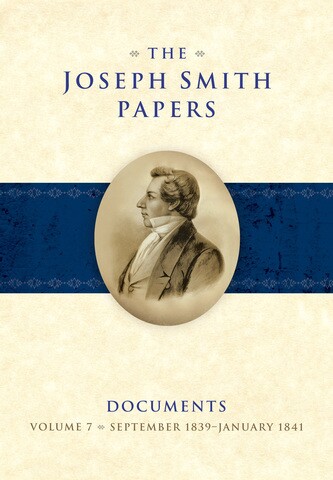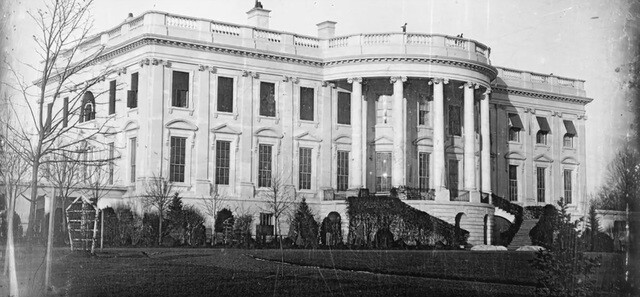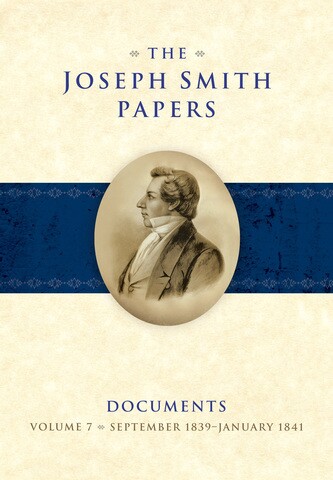After Latter-day Saints were expelled from Missouri and while trying to rebuild Zion in the malaria-ridden swamps near Commerce (later Nauvoo), Illinois, Joseph Smith took a historic journey to Washington, D.C., to meet with President Martin Van Buren.
Still reeling from the violence in Missouri and under heavy financial burdens, Joseph Smith traveled with Sidney Rigdon, Elias Higbee, and Orrin Porter Rockwell, their trip funded by a personal loan from U.S. Senator Richard Montgomery Young, who later presided at the 1844 trial of Joseph Smith's accused killers.
On November 9, 1839, James Adams wrote a letter of introduction for Joseph Smith, who met with President Martin Van Buren in the White House to "seek redress for the recent outrages commited on them and their property in Missouri. Those outrages are unparralleled in the annals of civilized communities," the letter states (The Joseph Smith Papers, Documents, Vol. 7: September 1839 - January 1841, "Letter of Introduction from James Adams").
About the meeting, Joseph Smith wrote to his brother Hyrum on December 5, 1839:
"On friday morning 29th we proceeded [to] the house of the President—We found a very large and splendid palace, surrounded with a splendid enclosure decorated with all the fineries and elegancies of this world we went to the door and requested to see the President; when we were immediately introduced into his parlor, where we presented him with our Letters of introductions;—as soon as he had read one of them, he looked upon us with a kind of half frown and said, what can I do? I can do nothing for you,—if I do any thing, I shall come in contact with the whole State of Missouri" (The Joseph Smith Papers, Documents, Vol. 7: September 1839 - January 1841, "Letter to Hyrum Smith and Nauvoo High Council").
Despite Martin Van Buren's rebuff, Joseph Smith was "not to be intimidated," as he states in the same letter, and Martin Van Buren promised to reconsider the matter. Joseph Smith and his companions then went on to seek reparations from the U.S. Congress, which was unsuccessful.
When it became apparent that neither the president nor Congress would aid the Saints, Joseph Smith's opinion of the politicians quickly soured. In a newspaper interview, Joseph Smith said Martin Van Buren "was not as fit as my dog, for the chair of the state; for my dog will make an effort to protect his abused and insulted master, while the present chief magistrate will not so much as lift a finger to relieve an oppressed and persecuted community of freeman."
► You'll also like: What Joseph Smith's Dog's Name Was (+ How He Comforted Him in Liberty Jail)
Lead image from the video above
Learn more about this fascinating time in our Church history in The Joseph Smith Papers, Documents, Vol. 7: September 1839 - January 1841.
The seventh volume of the Documents series, published in April 2018, contains personal correspondence, discourses, minutes, a revelation, and a memorial to the United States Congress, among other documents. The volume shows Joseph Smith and the church endeavoring to establish another gathering place for the Saints. Specific topics addressed in these documents include the practical and spiritual building up of Nauvoo, Illinois; the struggle to obtain redress for the property and lives lost in Missouri; the missionary efforts of the Quorum of the Twelve Apostles in England; and the introduction of new teachings and doctrines, including baptism for the dead.



